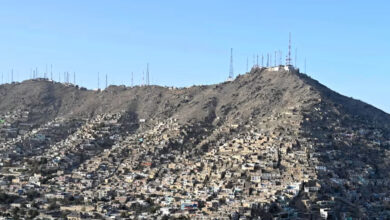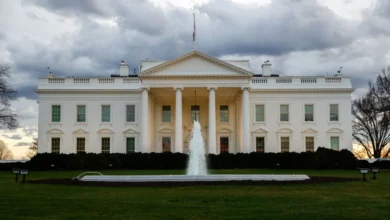A total of 110 journalists were killed because of their work in 2009, making last year the most lethal in the past decade for journalists, the International Press Institute (IPI) revealed on Thursday, with the release of its World Press Freedom Review 2009–Focus on the Middle East & North Africa.
The second-highest figure for the decade was 100, in 2006, during which 46 journalists were killed in Iraq, at the height of violence that engulfed the country following the 2003 invasion.
World Press Freedom Review Managing Editor Anthony Mills said, “This decade is unlike any other, because, in conflict countries such as Iraq, Afghanistan, Somalia and Pakistan, it has seen the deliberate targeting of journalists. Such a departure has changed the face of conflict reporting, leading to less coverage and therefore a worrying vacuum in the understanding of these complex events.”
Of the 735 journalists killed worldwide because of their jobs in the past decade, 170 were killed in Iraq, making it the most dangerous country in the world for journalists in the last ten years.
The Philippines was the second most dangerous country for journalists this decade, with 93 killed there between 2000 and 2009-–32 of them in a 23 November, 2009 massacre of reporters accompanying family members of a gubernatorial candidate on a trip to an election office. A total of 38 journalists were killed in the Philippines in 2009.
The third most dangerous country in the world for journalists this decade was Colombia, where 58 journalists were murdered over the last 10 years, many of them victims of violence between government forces, outlawed armed groups and drug cartels. A total of six journalists were killed in the country in 2009.
Mexico-–where drug cartels are involved in a violent standoff with the security forces–ranks behind Colombia as the fourth most dangerous country for journalists over the last 10 years, with 38 killed. A total of 11 were murdered in 2009.
Russia lies in fifth position, with 35 journalists murdered between 2000 and 2009-–five of them this year.
Asia was the most dangerous region of the world for journalists this decade, with 238 journalists, or 33 percent of all the decade’s victims, murdered there. A total of 31 journalists were killed in Pakistan this decade, eight of them in 2009, making this year the most lethal for journalists there in the last 10 years, due to a violent standoff between the Pakistan army and Pakistan Taliban militants.
The second most lethal region for journalists this decade was the Middle East and North Africa. A total of 202 journalists were killed there this decade, 27 percent of the global total for 2000 to 2009.
The Americas rank just behind the Middle East and North Africa, in third place, at 22 percent, with 162 journalists killed this decade. Seven journalists were killed on the job in the United States this decade, four of them when two TV news helicopters crashed while filming a chase in Phoenix, Arizona.
Europe ranks fourth, due to the high death toll in Russia, making up 9 percent of the world total for 2000-2009.
Africa, in sixth place, was less dangerous than Europe for journalists this decade. Nonetheless, a total of 53 journalists, 7 of the decade’s global total – were murdered on the African continent over the last ten years, 22 of them in Somalia, where nine journalists were killed in 2009 – victims of a lethal upsurge in violence as Islamic militants battle forces from an interim government, in the anarchic country.
In the Middle East and North Africa, as elsewhere across the world, impunity for those who murder, assault, harass and intimidate journalists remained the unacceptable norm.
“All of those journalists who lost their lives between 2000 and 2009 were seeking to provide information to the public and the International Press Institute pays tribute to their courage. Organizations such as our own will continue to press governments to find their murderers and to make sure that as we enter a new decade their bravery is not forgotten,” said IPI director David Dadge.
For each Middle East and North Africa country in the 2009 World Press Freedom Review, IPI issued a series of recommendations designed to help promote and improve the practice of free and independent journalism.
Of a total of 78 recommendations, 17 urged the government to repeal laws that stifle independent reporting. These include often vaguely-worded and broadly-applicable state security laws, criminal defamation laws, and restrictive press laws and codes.
A further 11 recommendations addressed the all-too-common phenomenon of security service harassment, arbitrary detention, monitoring, and assault of journalists. In connection with this, IPI urged the authorities to transparently investigate all allegations of security service abuse directed at journalists, as well as all other assaults and murders of reporters.
In seven of its recommendations, IPI urged the authorities to ensure that bloggers are free to report without any pressure through muzzling internet legislation, filters, and recording of user identities in internet cafes.
IPI also urged the authorities to ensure functioning Access to Information laws, complete with independent complaints commissions, to release all journalists jailed for their work, to establish independent judiciaries, to end censorship of journalists, and to ensure no political pressure is brought to bear on editors and reporters.
The last decade will be in focus again, at IPI’s 11-14 September 2010 World Congress in Vienna and Bratislava, at which IPI will be honouring 10 World Press Freedom Heroes-–one for each year of the decade. They will join 50 World Press Freedom Heroes already honoured at IPI’s 50th World Congress in Boston, making a total of 60, for IPI’s 60th year defending press freedom around the globe.
This article is published courtesy of the International Press Institute.




